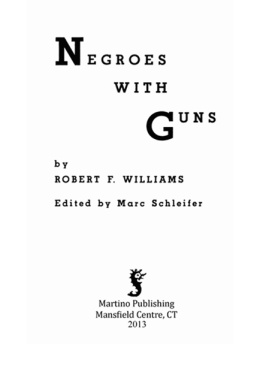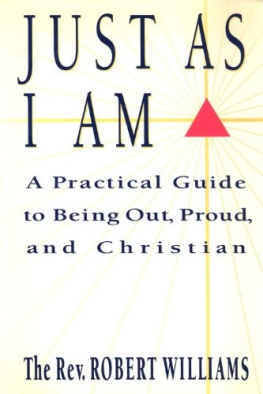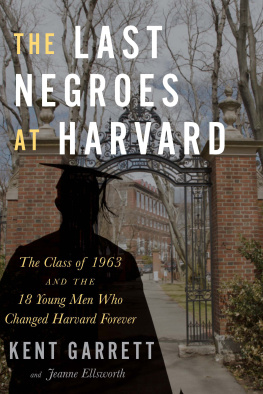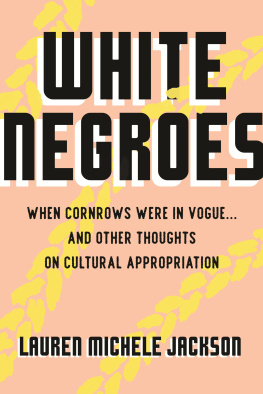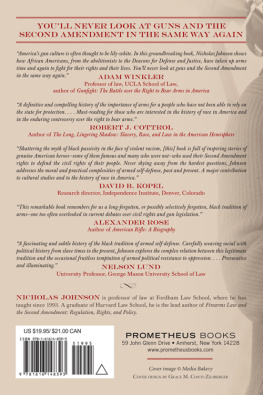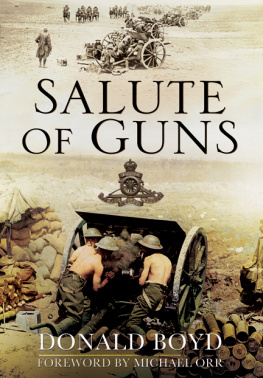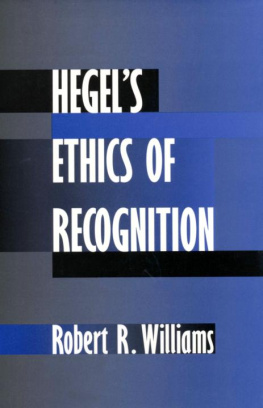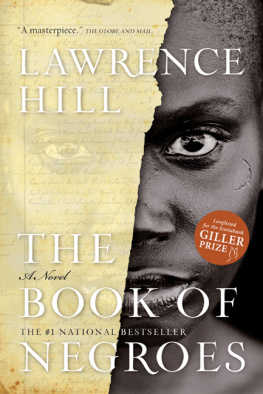Robert F. Williams - Negroes with Guns
Here you can read online Robert F. Williams - Negroes with Guns full text of the book (entire story) in english for free. Download pdf and epub, get meaning, cover and reviews about this ebook. City: Mansfield Centre, Connecticut, year: 2013, publisher: Martino Publishing, genre: Politics. Description of the work, (preface) as well as reviews are available. Best literature library LitArk.com created for fans of good reading and offers a wide selection of genres:
Romance novel
Science fiction
Adventure
Detective
Science
History
Home and family
Prose
Art
Politics
Computer
Non-fiction
Religion
Business
Children
Humor
Choose a favorite category and find really read worthwhile books. Enjoy immersion in the world of imagination, feel the emotions of the characters or learn something new for yourself, make an fascinating discovery.
- Book:Negroes with Guns
- Author:
- Publisher:Martino Publishing
- Genre:
- Year:2013
- City:Mansfield Centre, Connecticut
- Rating:5 / 5
- Favourites:Add to favourites
- Your mark:
- 100
- 1
- 2
- 3
- 4
- 5
Negroes with Guns: summary, description and annotation
We offer to read an annotation, description, summary or preface (depends on what the author of the book "Negroes with Guns" wrote himself). If you haven't found the necessary information about the book — write in the comments, we will try to find it.
Negroes with Guns — read online for free the complete book (whole text) full work
Below is the text of the book, divided by pages. System saving the place of the last page read, allows you to conveniently read the book "Negroes with Guns" online for free, without having to search again every time where you left off. Put a bookmark, and you can go to the page where you finished reading at any time.
Font size:
Interval:
Bookmark:
Martino Publishbing
P.O. Box 373,
Mansfield Centre, CT 06250 USA
ISBN 978-1-61427-411-7
2013 Martino Publishing
All rights reserved. No new contribution to this publication may be reproduced, stored in a retrieval system, or transmitted, in any form or by any means, electronic, mechanical, photocopying, recording, or otherwise, without the prior permission of the Publisher .
Cover design by T. Matarazzo
Printed in the United States of America On 100% Acid-Free Paper
COPYRIGHT 1962
MARZANI & MUNSELL, INC.
NEW YORK
EDITORS NOTE
It is eight years since the Supreme Courts historic decision on school segregation lifted the heart of the Negro people, giving strength to the struggle for voting rights and for integration of public facilities. The tenacious resistance of Southern racists including the use of violence condoned, when not abetted, by local authorities has given rise to bitter frustration and anger, bringing to the fore the issue of armed self-defense. In Monroe, North Carolina, under the leadership of Marine veteran Robert F. Williams, the Negro community took up guns for protection. Monroe, North Carolina has become the test case of the unqualified right of Negroes to armed self-defense when law and order break down.
The issue is biting deep in the Negro community and awareness of it is increasing in the rest of the country as symbolized by Jules Pfeiffers cartoon in the New York Post , August 15, 1962. It is a portentous issue, being debated by articulate and thoughtful men, and we set forth here the position of the Reverend Martin Luther King, Jr. and that of the novelist and scholar on John Brown and the abolitionist movement, Truman Nelson, as an introduction to the story of the Monroe case by its central figure, Robert F. Williams.
Mr. Williams is now in Cuba, as a political exile. I was already there and obtained his story in a three-hour taped interview at the Hotel Capri, in the Vedado section of Havana (see photo opposite). The interview was broadcast by WBAI-FM in New York on May 31, 1962 and later by WKPF-FM, San Francisco. This book is essentially that interview, but to develop some of his points Ive also used material from Mr. Williams article and editorials in his newsletter, The Crusader , as well as from his interview with John Schultz published in Studies on the Left , Spring, 1962.

TABLE OF CONTENTS

HATE IS ALWAYS TRAGIC
by Martin Luther King, Jr.
Those who adhere to the method of nonviolent direct action recognize that legislation and court orders tend only to declare rights; they can never thoroughly deliver them. Only when the people themselves begin to act are rights on paper given lifeblood. The method of nonviolent resistance is effective in that it has a way of disarming the opponent; it exposes his moral defenses, it weakens his morale and at the same time it works on his conscience.
Nonviolent resistance also provides a creative force through which men can channelize their discontent. It does not require that they abandon their discontent. This discontent is sound and healthy. Nonviolence saves it from degenerating into morbid bitterness and hatred. Hate is always tragic. It is as injurious to the hater as it is to the hated. It distorts the personality and scars the soul. Psychiatrists are telling us now that many of the inner conflicts and strange things that happen in the subconscious are rooted in hate. So they are now saying, Love or perish. This is the beauty of nonviolence. It says you can struggle without hating; you can fight war without violence.
As a race, we must work passionately and unrelentingly for first-class citizenship, but we must never use second-class methods to gain it. If this happens, unborn generations will be the recipients of a long and desolate night of bitterness, and our chief legacy to the future will be an endless reign of meaningless chaos.
We have come to the day when a piece of freedom is not enough for us as human beings nor for the nation of which we are part We have been given pieces, but unlike bread, a slice of which does diminish hunger, a piece of liberty no longer suffices. Freedom is like life. You cannot be given life in installments. You cannot be given breath but not body, nor a heart but no blood vessels. Freedom is one thingyou have it all, or you are not free.
Our destiny is bound up with the destiny of Americawe built it for two centuries without wages, we made cotton king, we built our homes and homes for our masters and suffered injustice and humiliation, but out of a bottomless vitality continued to live and grow. If the inexpressible cruelties of slavery could not extinguish our existence, the opposition we now face will surely fail. We feel that we are the conscience of Americawe are its troubled soul.
( from an address to the National Press Club, Washington, D.C., July , 1962)THE SOCIAL ORGANIZATION OF NON-VIOLENCE
by Martin Luther King, Jr.
Paradoxically, the struggle for civil rights has reached a stage of profound crisis, although its outward aspect is distinctly less turbulent and victories of token integration have been won in the hard-resistance areas of Virginia and Arkansas.
The crisis has its origin in a decision rendered by the Supreme Court more than a year ago, which upheld the pupil placement law. Though little noticed then, this decision fundamentally weakened the historic 1954 ruling of the Court. It is imperceptibly becoming the basis of a de facto compromise between the powerful contending forces.
The 1954 decision required for effective implementation resolute Federal action supported by mass action to under-gird all necessary changes. It is obvious that Federal action by the legislative and executive branches was half-hearted and inadequate. The activity of Negro forces, while heroic in some instances, and impressive in other sporadic situations, lacked consistency and militancy sufficient to fill the void left by government default. The segregationists were swift to seize these advantages, and unrestrained by moral or social conscience, defied the law boldly and brazenly.
The net effect of this social equation has led to the present situation, which is without clear-cut victory for either side. Token integration is a developing pattern. This type of integration is merely an affirmation of a principle without the substance of change.
It is, like the Supreme Court decision, a pronouncement of justice, but by itself does not insure that the millions of Negro children will be educated in conditions of equality. This is not to say that it is without value. It has substantial importance. However, it fundamentally changes the outlook of the whole movement, for it raises the prospect of long, slow change without a predictable end. As we have seen in Northern cities, token integration has become a pattern in many communities and remained frozen, even though environmental attitudes are substantially less hostile to full integration than in the South.
This then is the danger. Full integration can easily become a distant or mythical goalmajor integration may be long postponed, and in the quest for social calm a compromise firmly implanted in which the real goals are merely token integration for a long period to come.
The Negro was the tragic victim of another compromise in 1878, when his full equality was bargained away by the Federal Government and a condition somewhat above slave status but short of genuine citizenship became his social and political existence for nearly a century.
Next pageFont size:
Interval:
Bookmark:
Similar books «Negroes with Guns»
Look at similar books to Negroes with Guns. We have selected literature similar in name and meaning in the hope of providing readers with more options to find new, interesting, not yet read works.
Discussion, reviews of the book Negroes with Guns and just readers' own opinions. Leave your comments, write what you think about the work, its meaning or the main characters. Specify what exactly you liked and what you didn't like, and why you think so.

